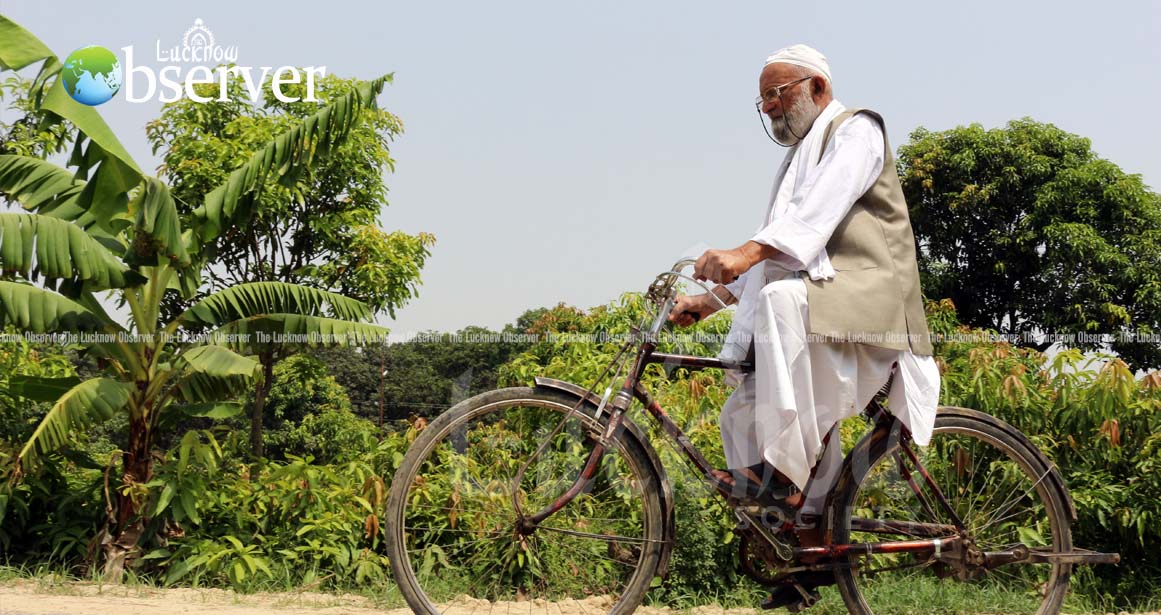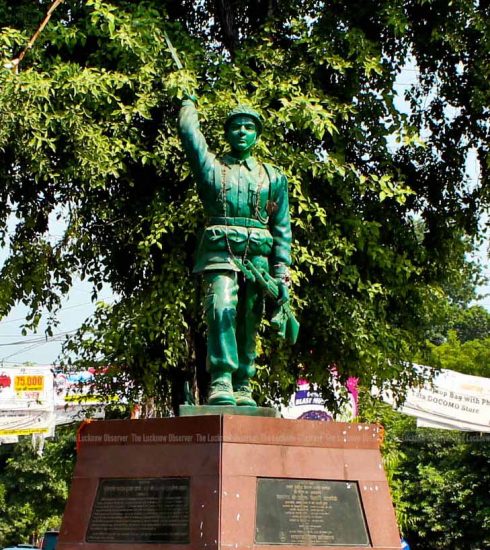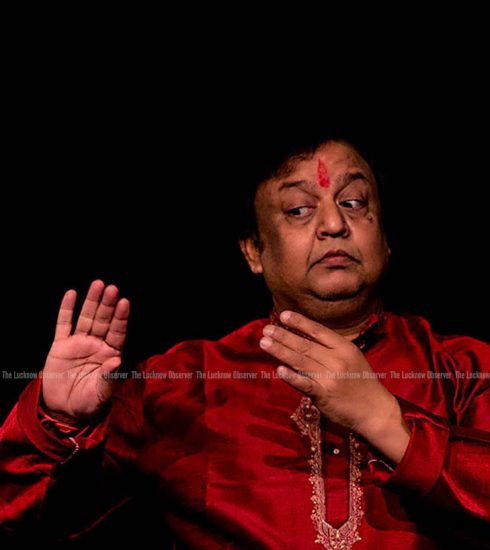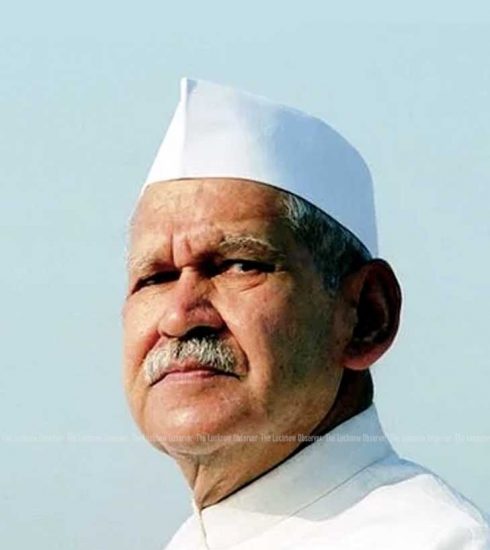No AAM Aadmi
Padmashri Kalimullah Khan, mango master introduces TLO to his magic tree in the dussehri mango belt of Malihabad
For Kalimullah Khan his mango tree is his most precious teacher in life. The Khan has been nursing this 100 year old tree for several decades now and does not tire of watching it sprout yet another new kind of mango, having already mothered hundreds of different varieties.
This tree too is probably originally from one of the trees from lakha bagh, the orchard with a lakh of trees planted in the 16th century planted in West Bengal by Mughal rulers and brought to Malihabad.
“I look at this tree and marvel at how magnanimous it is. This tree reminds me of a mother who is able to nurse hundreds of other human beings,” Kalimullah told The Lucknow Observer adding that the tree also convinces him how all of humanity is the offspring of one single mother.
The most precious lesson that Kalimullah has learnt from the tree is the importance of reaching out to others. That is why he is impressed these days with Prime Minister Narendra Modi who invited all heads of neighbouring states for his swearing in ceremony. Kalimullah lost no time in naming the latest variety of mango this season, NaMo.
Kalimullah hopes that Modi’s development agenda in the future will not lead to division amongst people and to disasters, but benefit everyone in the country.
He caresses each branch of the tree like he would a member of his family. He fell in love with it in 1987 and having learnt the art of grafting from his family of mango growers, Kalimullah has nursed it since then. He tends to the tree like he would to a mother. Every fruit is labelled and given names like Aslul Muqarrar, Husneara, Aishwarya and Sachin.
A drop out after class seven, Kalimullah has spent a good part of his life in mango orchards unlike many others from his family who do not find the cultivation of mangoes lucrative enough.
When he is not tending to his trees, Kalimullah enjoys playing chess with friends in the cool shade of the orchards.
“I have no idea what will happen to my tree when I am gone. None of my children are interested in making mango-growing a profession,”regrets Kalimullah.
There were 1300 varieties of mangoes in the early part of the 20th century and today there are less than 700 varieties.
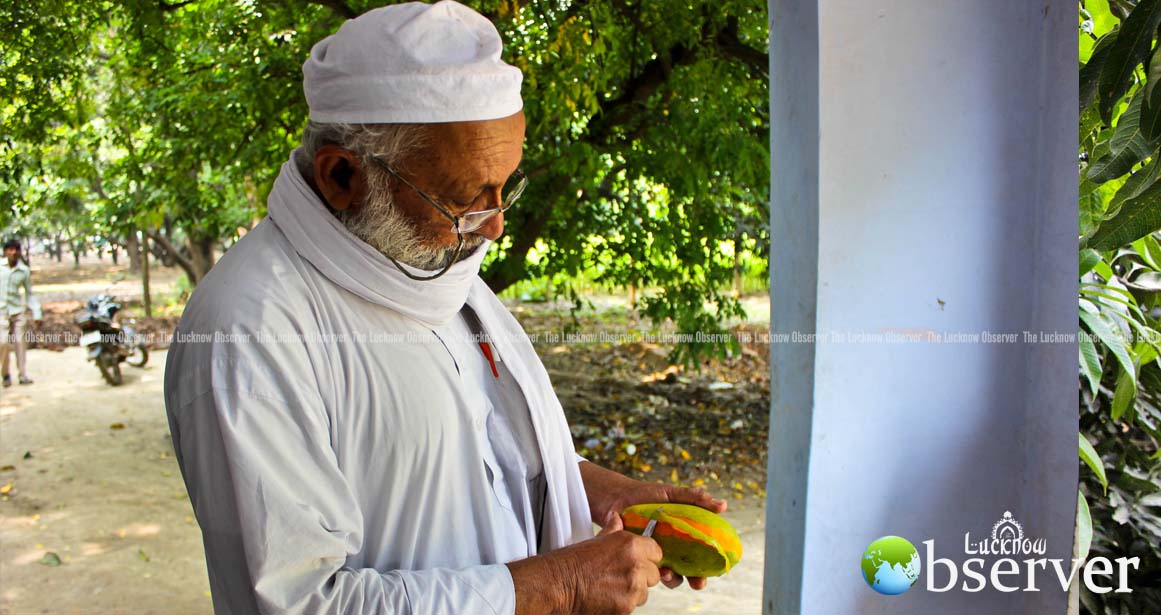
Carbides
What also bothers Kalimullah is the poison that is made its way into the king of fruits. Often growers, marketers and exporters use calcium carbide to ripen the fruit. This is most dangerous for children. Ideally the fruit should grow, ripen and fall off the tree by itself. But businessmen are in a hurry to make money. To increase the shelf life of the delicate fruit it is forced off branches before it ripens and then sold in the market wrapped in carbides.
Climate change is also affecting mango cultivation. Then orchards have been divided amongst different family members which does not make mango growing a profitable profession any more. Although India grows 50 percent of the world’s mangoes and some of the best varieties are found in the country, there is little help by way of subsidies and marketing facilities provided by the state. The result is an overall decline by nearly 40 percent inthe mango germplasm.
The government had promised regular water and electricity supplies way back in 1984 but mango growers do not enjoy any of those facilities.
A mango belt was declared in the area of Malihabad as a protected zone but nothing is safeguarded here and mango cultivators are a frustrated lot today.
The migration from rural to urban areas is rapid as the young do not look at mango growing to be of economic advantage to them. The result is that many traditional owners of mango orchards prefer to make a living chopping off trees and selling them or selling off the land itself to builders!
This is a human as well as an environmental tragedy to which there seems to be no solution at the moment, says Kalimullah whose favourite varieties include while he recalls that husnara was a favourite of Dr. Zakir Hussain, late president of India.
Hybridisation
Kalimullah is called king amongst mango growers but he has his detractors as well. Many claim that he is a marketing wizard who names mangoes after important people to draw attention to his work which is hybridisation and grafting, techniques amongst cultivators to create endless varieties of mangoes.
In hybridisation, two desired mango tree varieties are planted close to each and then the wait begins for a third variety to sprout. Apart from Kalimullah’s tree in a Haryana village there is a tree with a girth of 32 feet, branches up to 80 feet long, covering an area of 2700 square yards and producing about 37,000 pounds of mangoes every year.
In grafting, another way of mass mango variety production, the mother plant branch with a bud is stuck with the desired plant variety stem with bud.
Shamim A. Aarzoo
Writer is the Editor In Chief of The Lucknow Observer
(Published in The Lucknow Observer, Volume 1 Issue 4, Dated 05 July 2014)
